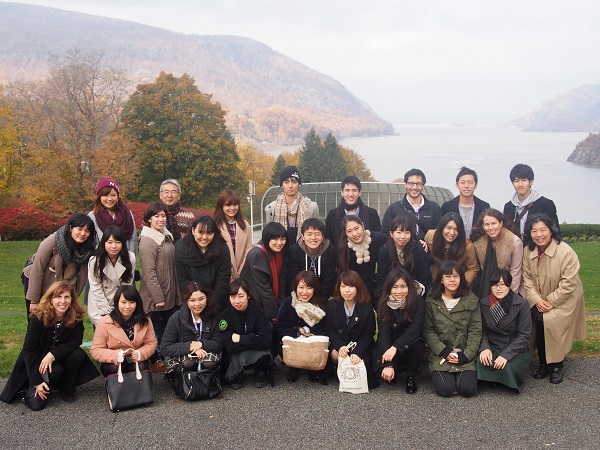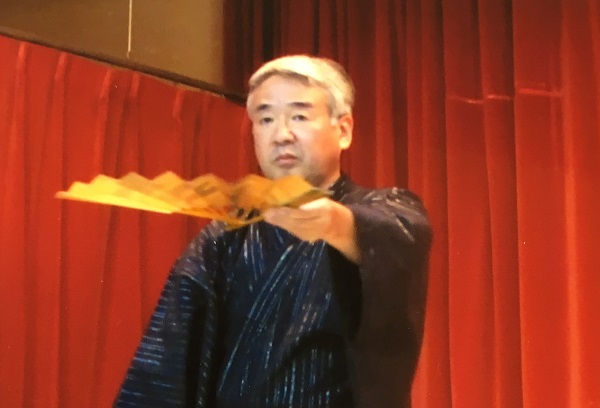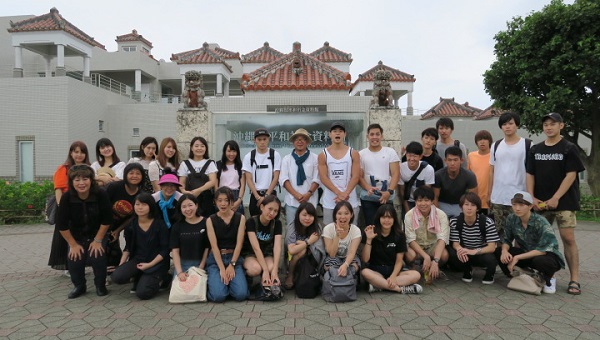reseach
Studying U.S. politics focusing on human relations and behavior in the historical record
Katsuro Nakano, Professor
Department of Politics, Faculty of Law
Posted Jan.27,2021
Faculty Profile
Professor Nakano studies the history of U.S. politics. He focuses particularly on the founding period, looking at similarities with the Meiji Restoration in Japan. Seeking for the clues to understand human nature, he approaches the study of history as a “dialogue with the past.”
Historic similarities between the U.S. during the founding period and Japan in the last days of the Tokugawa shogunate.
My field of specialization is the history of U.S. politics. I particularly focus on the period of foundation, when the nation became independent from Britain. Among the Founding Fathers of the United States, I give special attention to Alexander Hamilton. While he was known as a leading advocate of the ratification of the U.S. Constitution and as the first U.S. Secretary of the Treasury, he was overshadowed by Thomas Jefferson who got the limelight as the principal author of the Declaration of Independence. I became intrigued specifically by his position in the political landscape and contribution in the founding process, which I thought had a lot in common with that of Toshimichi Okubo, one of the leaders of the Meiji Restoration.
The United States of America is a multiethnic country that has accepted immigrants with diverse racial backgrounds. As such, many American citizens are of non-American origin, and in their quest for establishing identity, they can’t help but continue to ask themselves what it means to be an American. This can be identified as something of a national obsession. American citizens have traditionally felt intense peer pressure to be loyal to the national ideology; i.e., “American democracy represents justice.” This psyche has made the nation hostile toward communists and socialists, and enthusiastic about disseminating American democracy beyond its own borders to expand its influence to other countries.
In many developed countries, these American behaviors have given rise to strong anti-American sentiment in a protective response against the cultural invasion. However, Japan has responded to the approach of the U.S. democracy mission in quite a different manner. Since its defeat in World War II, rather than nursing a grudge against its former enemy, Japan has proactively imported even the culture of the U.S. This is very exceptional in world history.
Is the Japanese attitude described above based on a proper understanding of the U.S.? I doubt it. Japanese society faces a number of serious issues associated with the U.S. relationship, such as those involving U.S. military bases in Okinawa. More recently, when the last (but not latest) U.S. presidential election resulted in an unexpected name assuming the Oval Office, many Japanese specialists in U.S. politics were urged to re-examine their theories and views developed over many years about the nation as the world’s exemplary nation of democracy.
In contrast to natural science, perspective on historical science does not bear the criteria of universality. Therefore, the best historians can do is to maintain a sense of objectivity, constantly questioning their own views. I will continue to look closely without refusing to see the reality of what is occurring in real life to keep considering what it means to our world.
Interaction with foreignness is a stimuli to new findings
In general, there are two major approaches to political studies. One is to study in light of philosophy, history and ideology. This is referred to as “politics.” The other approach is characterized by data-based scientific analysis, which is known as “political science.” Being a researcher of the former type of politics, I appreciate the favorable academic environment provided by Hosei University, where many faculty members are respectful toward the politics approach.
However, in order to obtain new findings, you should avoid being complacent with a comfortable environment. Instead, it is vitally important to be exposed to things foreign in pursuit of appropriate stimulation. To this end, I am working to build external networks, taking advantage of the Tokyo location.
Such off-campus networking efforts have provided precious and unexpected opportunities to spark new relationships. One such example is my encounter with a Noh performer and my coach in the traditional performing art. I met her when she was a graduate student at Tokyo University of the Arts who participated in the KAKEHASHI Project―the Bridge for Tomorrow, a Japan-U.S. youth exchange program hosted by the Japan Foundation. She was among a total of 150 exchange students from six universities, including Hosei, visiting the U.S. in November 2014 as part of the program, and I served as an escort to the visiting students. I started to get along well with the young Noh performer graduate student, who inspired me to learn how to practice the art as my hobby. This graduate student is my current teacher.
Hosei University runs the Nogami Memorial Noh Theatre Research Institute, which stages Noh performances on campus. I hope to see my teacher appear on the stage of the on-campus Noh theater some day in the future. That is one of my current dreams.

Visiting West Point, NY, as a participant in the KAKEHASHI project. Enjoying a reunion with students at the U.S. Military Academy who had previously visited Hosei University.

I have been receiving Noh lessons for four years. This photo shows my performing The Tipster Sprite.
Study the past to gain practical wisdom in preparation for the future
Political studies are not for building practical life skills. Yet, a wealth of insights accumulated in this research field help promote understanding of various aspects of human nature.
How should leaders of society gain the necessary power to bring people together and make a difference in the society? What drives people forward and what prohibits people from continuing on? A careful examination of historical facts will provide a key to understanding the principles governing human motivation for actions and behaviors. Desire for power and self-interest can become an engine for action, but will not endure for a long period of time. In order to sustain social development, people need to share common, meaningful, achievable goals.
Discussions on humanity help develop and improve real-life personal relationships, which is a form of practical wisdom. From this point of view, you should study the past to prepare yourself to address future challenges.
My suggestion is as follows: study history to obtain insights, and use them in discussions and practical activities. Persist in repeating this process to gain practical wisdom in preparation for the future.

In order to apply findings from studying history to address actual real-life issues, Prof. Nakano conducts fieldwork. Recent activities include interviews with people facing issues involving the relationship with the U.S. This photo shows activities at a study camp organized in Okinawa.
Katsuro Nakano, Professor
Department of Politics, Faculty of Law
Born in Kagoshima in 1958.
Received a Bachelor’s degree in law at Rikkyo University, and completed the doctoral program at the School of Legal and Political Studies, University of Tokyo Graduate Schools for Law and Politics. Doctor of Juridical Science. Served as associate professor and professor at the School of Law, Hokkaido University before assuming his current post of professor at the Department of Politics, College of Law and Politics, Hosei University in 2000. Dean of College of Law and Politics from 2020.

